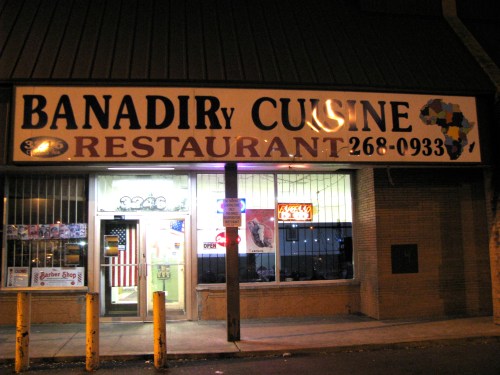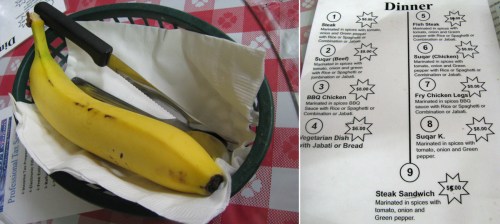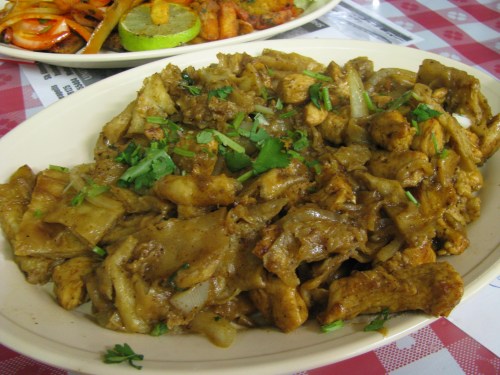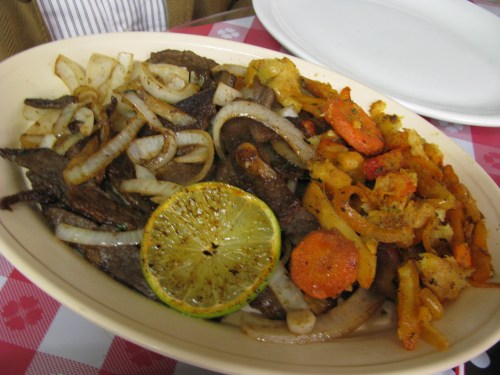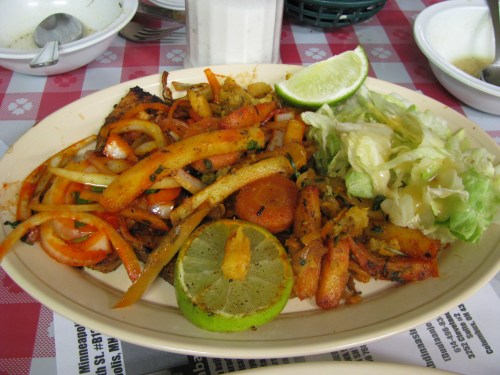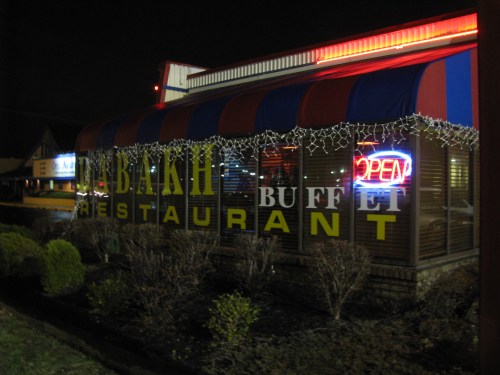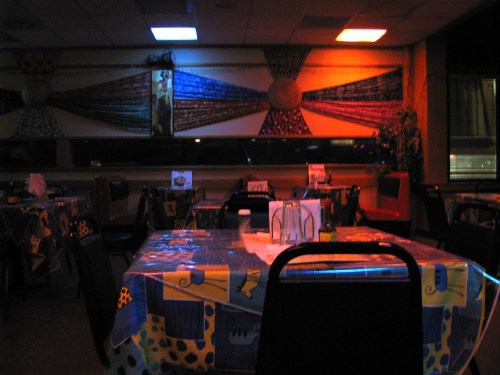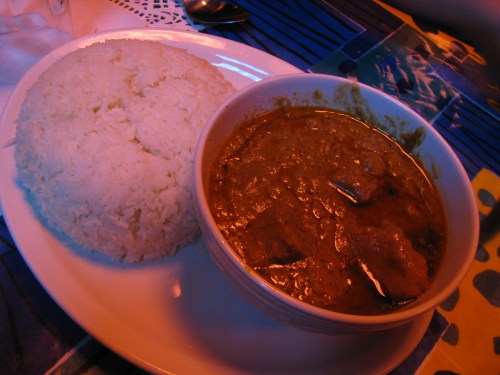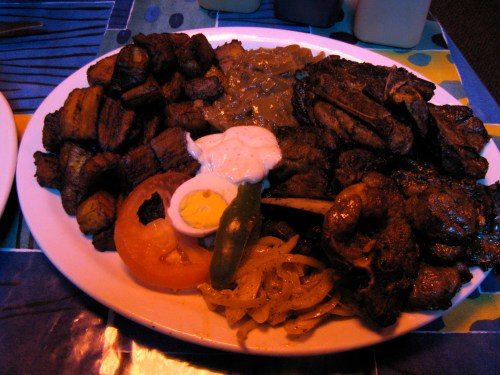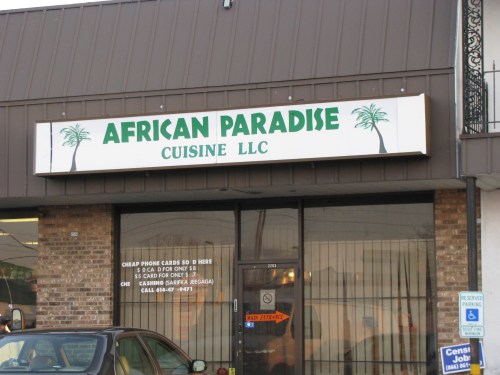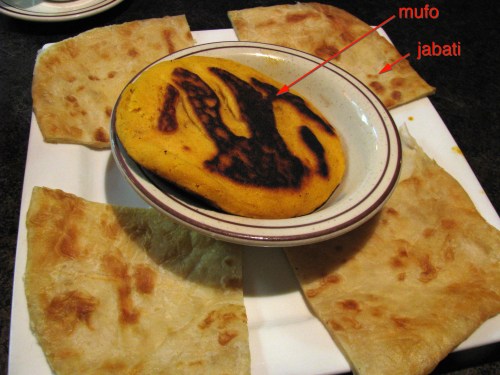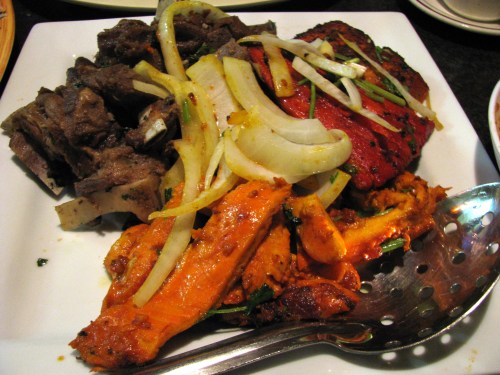L’Appat Patisserie Café
1159 Oak St.
(614) 252-6822
Website
L’Appat Patisserie in Olde Towne East is best known for its sweet treats, but owner Didier Alapini, has started offering a Pan-African day menu every Thursday. Didier is from Benin in West Africa but his weekly Pan-African menus span the continent from Morocco to South Africa and include all kinds of dishes. Here’s the menu from last week’s inaugural Pan-African day.
The menu will change every Thursday. Each week’s menu is posted in advance on their Facebook page.
“Panafrican Day” Menu (Thursday, October 3rd 2013)
Soupe du jour
Sweet Potato Soup (Zambia) $4.00
Creamy sweet potatoes, rice, fresh herbs, and spice soup
Sandwich du jour
N’Djamena Chicken Sandwich (Chad) $10.00
Sautéed chicken and bacon, in gruyère spinach sauce on ciabatta loaf, served with roasted potatoes
Entrees: (The first price is lunch and the second is dinner).
Black Olive Salad (Sudan) $9.00 $11.00 (with soup)
Mixed greens, fresh tomatoes, cucumbers, and black olives with citrus vinaigrette.
Moussaka á la mauricienne (Mauritus Island) $13.00 $15.00
Lamb, beef and eggplant lasagna in eggplant sauce with salad and garlic bread
Dakouin (Benin) $11.00 $13.00
Grilled leg quarter with fresh tomato, green pepper and onion sauce served with Gari porridge
Fish Boulettes (Morocco) $13.00 $15.00
Fish meatballs in sweet peppers and onion sauce, served over vegetable rice
Here are a couple of the dishes that we enjoyed last week. Pavlova beef with a spicy peanut and spinach sauce, served with sweet potatoes and plantain. This Ghanaian dish was available hot or mild and the hot version definitely had a kick.
Beef steak du nomade from niger – a panini style sandwich with suya beef steak and cheese. This was served with a large plate of roasted vegetables and potatoes.
L’Appat is also offering a seafood night on Fridays.
Seafood Night Menu
September – October Special
(Every Friday Night only: 6:00pm -8:30pm)
Soupe du jour $5.50
*Salade Seychelloise $16.00
Shrimp, sweet corn, bell pepper and spring mix tossed in spicy vinaigrette
*Dish served with Seafood Barquettes and soupe du jour
Seafood Brik $22.00
Shrimp, sword fish, crab and vegetable in filo dough served with salad
Frites au poisson $18.00
Whole grilled Tilapia served with oven fried potatoes and salad
If you haven’t been to L’Appat we definitely encourage you to check it out. They have a really interesting (and good) assortment of pastries, cookies and cakes. The cafe is a nice light space, open for breakfast and lunch and their regular lunch menu includes soups, sandwiches and salads.




